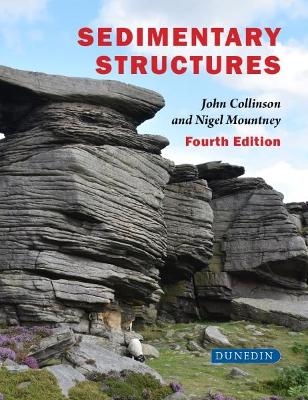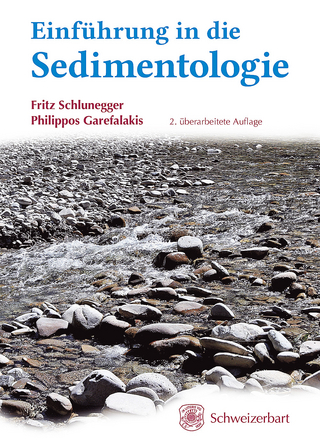
Sedimentary Structures
Dunedin Academic Press (Verlag)
978-1-78046-062-8 (ISBN)
Now enhanced with colour photographs and illustrations, this thoroughly revised fourth edition of Sedimentary Structures enhances its status as a major textbook in geology. Since its first publication in 1982, Sedimentary Structures has established and maintained itself as a pre-eminent resource that sets out a clear methodology and philosophy for understanding present-day sediments and sedimentary rocks as the product of dynamic processes.The fourth edition of this classic textbook introduces erosional, depositional and post-depositional sedimentary processes in an easily accessible way. It shows how sedimentary structures can be interpreted, across a wide range of scales, in terms of those processes.
Sedimentary structures produced by erosion, deposition and post-depositional change are all clearly explained and related to the processes that formed them. Hydrodynamic and aerodynamic controls on the development of subaqueous and aeolian bedforms are discussed, as are the styles of deformation to which sediments can be subjected after deposition. Structures that characterize deposition caused by chemical and biologically influenced processes are explained and illustrated, along with the complex effects of chemical changes, and of animal and plant activity in modifying sediments after they have been deposited. The book ends with an introduction to the methods and principles of environmental interpretation, for which earlier chapters provide an invaluable basis.Sedimentary Structures is designed principally for use in undergraduate settings and will be invaluable to students reading geology, earth sciences, physical geography and environmental sciences throughout their degree studies. It will also appeal to enthusiastic students at colleges and schools, as well as to amateur geologists who want to gain an understanding of sedimentary processes and products. Furthermore, the book is also valuable as a reference for both academic researchers and industry professionals alike. The fourth edition covers all major recent developments in the subject. It is characterized by an abundance of informative illustrations and photographic examples, and introduces colour figures for the first time.
This edition, the first prepared without the direct input of the late David Thompson, builds on a major re-write that paid particular attention to recent advances in the understanding of aeolian processes and bedforms, and in the interpretation of trace fossils. The introduction to environmental interpretation has been further developed to reflect recent advances in stratigraphic thinking, thereby enabling sedimentologists to more readily relate the occurrence of assemblages of sedimentary structures to likely environments of deposition. Sedimentary Structures emphasizes a practical, hands-on approach. It remains indispensable to those with a serious interest in the study of sedimentary structures, not only as fascinating features in themselves but also as key indicators in the reconstruction of past environments.
John Collinson, formerly Professor of Sedimentology at the University of Bergen, Norway, and until recently ran his own geological consultancy. Nigel Mountney is Professor of Sedimentology in the School of Earth and Environment at the University of Leeds where he is the Director of the Fluvial & Eolian Research Group; additionally, he is a former Chief Editor of Sedimentology, a leading academic journal.
PrefaceAcknowledgements1: Introduction to the study of sedimentary structures2: Bedding3: Basic properties of fluids, flows and sediment4: Erosional structures5: Depositional structures in muds, mudstones and shales6: Depositional structures of sands and sandstones7: Depositional structures in gravels, conglomerates and breccias8: Depositional structures of chemical and biological origin9: Structures due to deformation and disturbance10: Assemblages of structures and environmental interpretationAppendix 1: Directional data: collection, display, analysis and interpretationAppendix 2: Sampling and preserving unconsolidated sedimentsAppendix 3: Methods for studying present-day environmentsAppendix 4: Techniques for the study of trace fossilsAppendix 5: Techniques for sedimentary loggingAppendix 6: Key to common sedimentary lithologies and structuresBibliographyIndex
| Erscheinungsdatum | 18.09.2018 |
|---|---|
| Zusatzinfo | colour illustrations throughout |
| Sprache | englisch |
| Maße | 190 x 235 mm |
| Themenwelt | Naturwissenschaften ► Geowissenschaften ► Geologie |
| ISBN-10 | 1-78046-062-7 / 1780460627 |
| ISBN-13 | 978-1-78046-062-8 / 9781780460628 |
| Zustand | Neuware |
| Haben Sie eine Frage zum Produkt? |
aus dem Bereich


